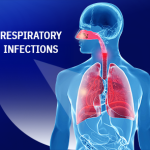Pharyngitis
Pharyngitis, commonly referred to as a sore throat, is one of the most prevalent conditions that nearly everyone experiences at least once in their life. Although it affects both adults and children, it is particularly common in children, especially those under the age of five. The incidence of sore throat is notably higher in countries where antibiotics are frequently overprescribed.
Pharyngitis cases increase during the winter season, primarily due to viral respiratory infections such as the common cold and influenza.
In this article, we’ll explore Pharyngitis in depth—its causes, symptoms, and how to prevent it.
- What is Pharyngitis?
- Types of Pharyngitis
- Causes of a Sore Throat
- Risk Factors
- Symptoms of a Sore Throat
- Complications of a Sore Throat
- How is Pharyngitis Diagnosed?
- Treatment of a Sore Throat
- Home Remedies to Ease a Sore Throat
- How to Prevent a Sore Throat
What is Pharyngitis?
Pharyngitis is the inflammation of the tube located at the back of the throat, which carries food to the esophagus and air to the windpipe. This inflammation causes pain in the throat, particularly during swallowing, along with irritation of throat tissues.
Types of Pharyngitis:
Acute Pharyngitis
Usually caused by an infection and symptoms typically resolve within a few days.
Chronic Pharyngitis
Often due to sinus infections, nasal allergies, or exposure to respiratory irritants like smoke. This type can persist for extended periods.
Causes of a Sore Throat:
Pharyngitis can be caused by a range of viral or bacterial infections:
Viral Pharyngitis:
Accounts for 50% to 80% of sore throat cases. Common viruses include the cold virus, influenza, adenoviruses, and coronaviruses. Less frequently, viruses like herpes, HIV, and Coxsackievirus may also be responsible.
Bacterial Pharyngitis:
Often caused by streptococcal bacteria, affecting about 25% of children and 10% of adults. Other bacterial causes include:
Gonorrhea infections of the throat
Pertussis (whooping cough)
Other, less common non-infectious causes include:
Placement of a feeding or breathing tube through the mouth or throat
Acid reflux (GERD), where stomach acid irritates the throat
Allergies to dust, pollen, perfumes, or spices
Risk Factors:
Certain conditions increase the likelihood of developing Pharyngitis, including:
Chronic sinus infections
Smoking or exposure to cigarette smoke
Working in healthcare or chemical environments
Symptoms of a Sore Throat:
Pharyngitis symptoms usually begin with throat pain, especially when swallowing or talking, and may include dryness and hoarseness. Other symptoms include:
Headache
Swollen tonsils
Nasal congestion
Sneezing and coughing
Bitter taste in the mouth
Fever
Enlarged lymph nodes
Muscle aches
Nausea and vomiting
Abdominal pain (especially in children)
Complications of a Sore Throat:
Neglecting to treat Pharyngitis or ignoring medical advice can lead to serious health issues such as:
Pneumonia
Heart conditions
Middle ear infections
Rheumatic fever
Peritonsillar abscesses
Kidney diseases
How is Pharyngitis Diagnosed?
The doctor will first ask about symptoms and medical history, then conduct a physical exam to check for throat redness, swelling, or spots. They may also examine the nose, ears, and neck.
In unclear cases where symptoms don’t differentiate between bacterial or viral Pharyngitis, a throat swab will be taken for laboratory analysis.
Treatment of a Sore Throat:
Treatment varies by individual case and symptoms, so a doctor’s evaluation is essential. Possible medications include:
Antibiotics for bacterial infections
Antifungals for fungal infections
Antihistamines for allergic pharyngitis
- Antacids for acid reflux-related symptoms
Home Remedies to Ease Pharyngitis:
Especially helpful for viral Pharyngitis, home remedies include:
Gargling with warm salt water
Using throat lozenges
Running a humidifier in dry air
Drinking plenty of warm fluids daily to ease swallowing and stay hydrated
Natural Ingredients That Help Treat a Sore Throat:
Lemon and honey: Helps remove mucus
Apple cider vinegar: Kills bacteria and soothes the throat
Cinnamon: A traditional remedy for sore throat and cold relief
Garlic: Natural antibacterial and antiseptic properties
Honey: Effective in fighting bacteria and soothing throat pain
How to Prevent a Sore Throat:
To protect yourself and your child from Pharyngitis, follow these simple practices:
Wash hands regularly; use hand sanitizer when water is unavailable
Avoid close contact with sick individuals
Drink warm fluids frequently
Eat a healthy, balanced diet
- Stay away from smoking and smokers
While Pharyngitis is usually not a serious condition, its symptoms can be painful and disruptive. In some cases, it may lead to moderate or severe complications. Consulting an ENT specialist early on can shorten the duration of illness, prevent further issues, and provide the right guidance for avoiding future infections.






